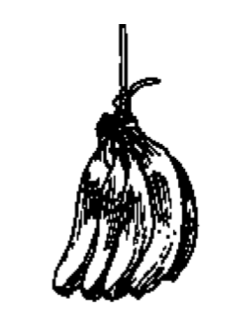One might begin to place novelist J. M. Coetzee at a conjunction of influences: Dostoyevsky, Defoe, and Beckett. His novel The Master of Petersburg (1995) is one of the finest studies of the Russian writer, maybe the only one that seems to operate from within Dostoyevsky’s consciousness. The imposture causes Coetzee little contortion because he shares Dostoyevsky’s impassioned concentration on essential questions and complications of being, if little of his wild humor. From Defoe, Coetzee may have learned that allegory need not operate in a misty forest of capitalized nouns, that a hard focus on material reality and concrete things simply named opens a sturdier doorway to absolutes. (One might also adduce Hemingway here, were Coetzee not so much less flamboyant in his reticence.) Actually he may not have had to look as far as books: Coetzee grew up in South Africa, a country which, under apartheid, might itself have been invented as allegory.
His novel Foe (1988) refracts Defoe’s most famous book, and its metaphysical gamesmanship is sparked by the insight that if Robinson Crusoe is the foundation of the English novel, then the form was launched under false colors, since Crusoe was published and initially received as a straightforward traveler’s tale. Fiction begins in forgery and approaches truth roundabout, through deception and misdirection.
Beckett’s influence is the deepest and comparatively covert. Though Beckett has not (yet?) been the subject of a novel, Coetzee’s encounter with his second novel, Watt, forms the climax of his oblique memoir (it is written in the third person) Youth (2003). That reading marked the birth of the writer: “How could he have imagined that he wanted to write in the manner of [Ford Madox] Ford when Beckett was around all the time?” Here he finds an author whose “pace fitted exactly to the pace of his own mind”—a confession that might seem a little scary to anyone who has read the wonderful Watt, since its style faithfully reflects the title character’s compulsion to trace every effect to its cause and work every possible permutation on a given set of elements, a pursuit that leads to madness.
But Watt is also very funny, “so funny that he rolls about laughing.” It is difficult to picture either the chilly youth of Youth or the smooth-faced, clear-eyed man of contemporary jacket photos, one corner of his mouth cocked in a grimace of impatience, in quite this position, but such is the force of revelation. And something in “rolls about laughing” points to a larger tendency in Coetzee’s work: within the realm of conflicted feeling that Coetzee is uniquely...
You have reached your article limit
Sign up for a digital subscription and continue reading all new issues, plus our entire archives, for just $1.50/month.
Already a subscriber? Sign in





